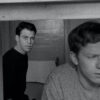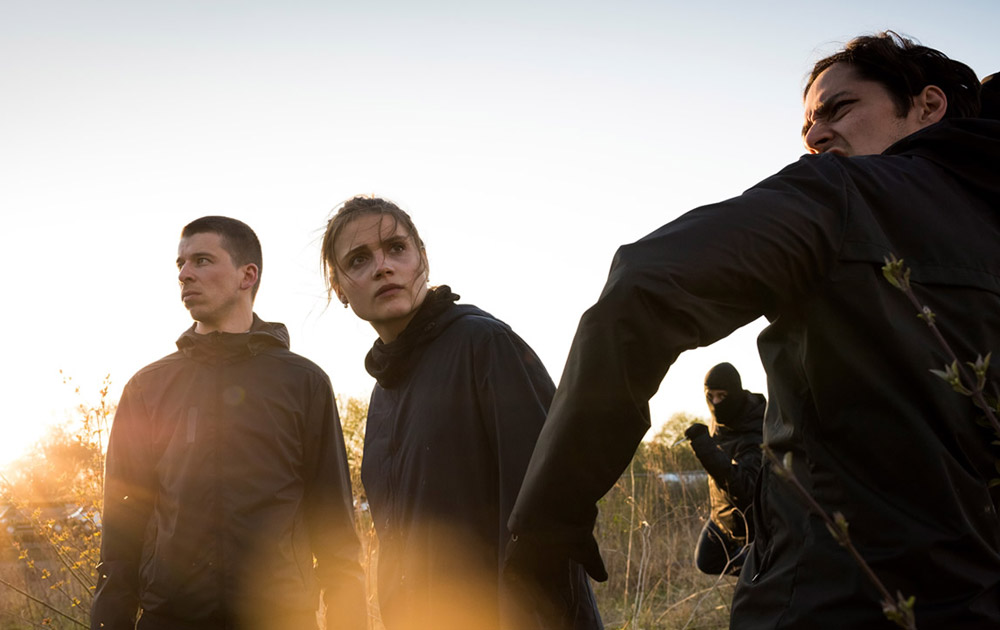“What good are these laws if nobody believes in them anyway?” Luisa (Mala Emde) asks her friend Batte (Céline Gaffron) as the two count down the minutes until their constitutional law class ends in “And Tomorrow the Entire World,” eager to get back to their headquarters of P31, a community of activists that has sprung up to combat the rising “citizen protests,” as the nightly news refers to them, by alt-right groups in Germany. Despite being introduced diving into dumpsters to cook up unused produce, these aren’t your parents’ peace-loving hippies, with Luisa initially scrutinized by the group for looking slightly soft, told by one of the leaders Alfa (Noah Saavedra) to “jump in or get out” when he catches her staring into the exercise room during her first visit to the compound.
Luisa earns the group’s trust quickly, fearlessly snatching away the cell phone of a member of the Homeland Protection South during a public demonstration to possibly get a lead on where the next one will be, but whether she trusts herself is another question entirely in Julia von Heinz’s provocative drama that ties her radicalization into coming into her own as an independent thinker, naturally wondering what her limits are during extraordinary times when the rules that once governed society and might have previously offered personal guidance are falling apart. Feeling that there’s more to be learned out of school than in it, Luisa begins spending much of her time with Alfa and Lenor (Tonio Schneider), who take a proactive approach to stymie neo-Nazis, anticipating where they’ll be next and stage counter-actions. A potential love triangle is hinted at when Lenor has unrequited affection for Alfa and Luisa starts having designs on Alfa, though whether it’s because of him or his politics is slightly unclear, yet the three don’t let that get in the way of their devotion to the cause, with only debate about the right way forward able to divide them.
Still, they realize they may be slightly over their heads upon finding a box of explosives at the home of one of the neo-Nazis, and the fear sets in not that they could be subject to violence, but that they might give into it themselves, a particularly frightening concept in the case of Luisa, whose ideas about the world haven’t yet been fully formed. von Heinz and co-writer John Quester nod to the spread of hate with the film’s title rooted in Nazi propaganda, but it’s admirably after something else that’s equally insidious when Alfa, Lenor and Luisa wonder if to defeat neo-Nazis, they have to emulate their tactics, with the seriousness of their beliefs conflated with how violent they’re willing to get.
As energetic as “And Tomorrow the Entire World” is with kinetic lensing from cinematographer Daniela Knapp and a natural rhythm emerging from the adrenaline rushes that come from P31’s preemptive strikes, von Heinz locates an extra gear when the impatience of youth is suddenly combined for the first time with the real ability to pull a trigger, tackling a dilemma that surely is reverberating with millennials well beyond Berlin. In acknowledging uncertainty in how best to stop a monster, the director finds the proper way to start, vividly depicting how knowledge as it relates to history — and, in Luisa’s case, herself — becomes power and creates its own sense of responsibility.
“And Tomorrow the World” will screen at the Venice Film Festival on September 10th at 10:30 pm at the Arena Lido and Arena Giardini.




